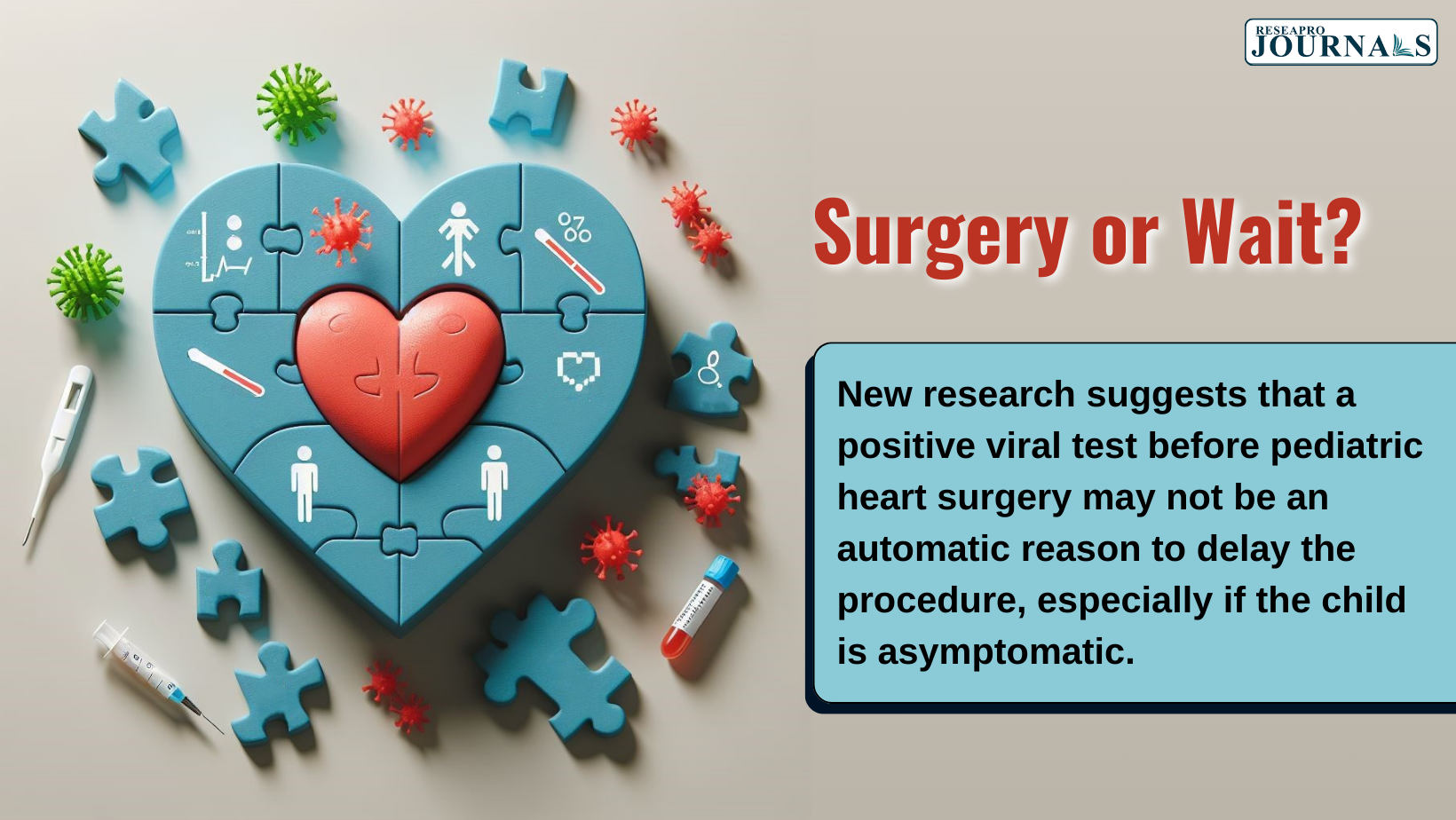
Facing the prospect of your child undergoing heart surgery is stressful enough, and a positive viral test just before the procedure can add another layer of worry. Should you postpone the surgery? Will the virus impact their outcome? A recent study sheds light on this critical question, offering valuable insights for parents and doctors alike.

A retrospective study by researchers examined the postoperative outcomes of almost 1,000 children undergoing congenital heart surgery. Over 370 patients received routine viral testing before surgery, with nearly 11% testing positive.
The study’s key finding:
Testing positive for a virus alone did not significantly impact surgical outcomes, including mortality. This suggests that a positive test result may not automatically necessitate delaying surgery.
However, the researchers delved deeper, analyzing the group of positive-testing patients (107) and comparing those who developed viral symptoms within 30 days of surgery to those who remained asymptomatic. While both groups recovered well, a crucial difference emerged:
- Symptomatic children: Experienced longer hospital stays (23.4 days vs. 13.4 days) and longer intubation times (9.8 hours vs. 4.9 hours).
- Asymptomatic children: Recovered similarly to the negative-testing group, with no significant difference in hospital stay or intubation time.
These findings imply that focusing solely on the viral test result might be misleading. The presence of symptoms, not the test itself, could be a more accurate predictor of potential postoperative complications in these children.
Important Caveats:
- This is a single study, and larger prospective studies are needed to confirm these findings.
- The decision to proceed with surgery ultimately depends on individual factors, such as the child’s specific condition, severity of symptoms, and other unique considerations.
- Always consult your child’s healthcare team for personalized guidance and decision-making regarding surgery. This information is not intended to replace professional medical advice.
This research could potentially impact preoperative protocols for children undergoing heart surgery, potentially reducing unnecessary delays while prioritizing the safety of symptomatic patients. Continued research is crucial to refine this approach and ensure optimal outcomes for all children undergoing this critical surgery.
